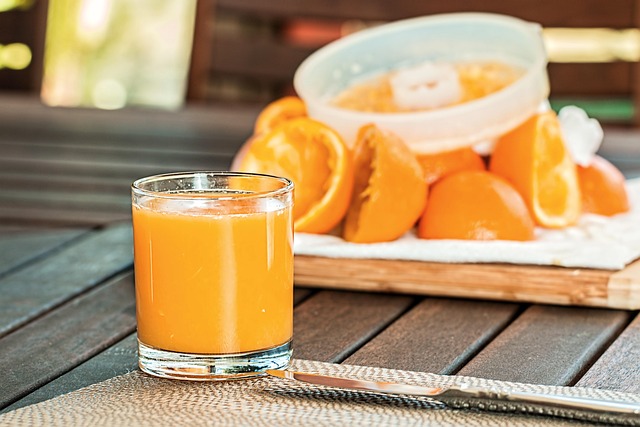When it comes to maximizing strength performance, many athletes and fitness enthusiasts focus on training programs, nutrition plans, and recovery strategies. However, one critical factor often overlooked is hydration. Proper hydration is not just about quenching thirst—it plays a fundamental role in muscle function, energy production, and overall physical performance. In fact, even mild dehydration can impair strength, endurance, and mental focus, making it harder to achieve your goals in the gym or during competition.
In this article, we’ll explore why hydration is essential for strength performance, how dehydration affects the body, and practical tips to ensure you stay adequately hydrated before, during, and after workouts.
Why Hydration Matters for Strength Training
Water makes up approximately 60% of the human body and is involved in nearly every physiological process. For strength athletes, hydration is particularly important because it directly impacts:
- Muscle Function Muscles are roughly 75% water, and they rely on proper hydration to contract efficiently. Dehydration reduces blood flow to working muscles, limiting oxygen and nutrient delivery. This can lead to decreased strength output and increased fatigue during lifts.
- Joint Lubrication Adequate hydration supports synovial fluid production, which cushions joints and reduces friction during movement. Without enough water, joint stiffness and discomfort may occur, increasing the risk of injury during heavy lifts.
- Energy Production Water is essential for metabolic processes that convert food into energy. When dehydrated, the body struggles to produce ATP (adenosine triphosphate), the primary energy currency used by muscles during exercise. This can result in sluggish performance and reduced power output.
- Temperature Regulation During intense workouts, the body generates heat as a byproduct of energy expenditure. Sweating helps dissipate this heat, but excessive sweating without replenishment leads to dehydration. This impairs the body’s ability to regulate core temperature, potentially causing overheating and heat-related illnesses.
- Cognitive Function The brain is highly sensitive to changes in hydration status. Even slight dehydration can impair concentration, decision-making, and reaction times—key components of executing complex movements like squats, deadlifts, or Olympic lifts.
How Dehydration Impacts Strength Performance
Research consistently shows that dehydration negatively affects athletic performance, including strength-based activities. Here’s what happens when you’re not properly hydrated:
- Reduced Strength Output Studies have demonstrated that dehydration levels as low as 2% of body weight can lead to significant decreases in maximal strength. For example, if you weigh 150 pounds, losing just 3 pounds of water through sweat can reduce your ability to lift heavy weights.
- Increased Perceived Effort Dehydration amplifies the perception of effort, making exercises feel harder than they actually are. This psychological barrier can prevent you from pushing yourself to your full potential.
- Delayed Recovery After a workout, muscles need water to repair and rebuild. Dehydration slows down protein synthesis and glycogen replenishment, prolonging recovery time and increasing soreness.
- Electrolyte Imbalance Along with water loss, dehydration causes imbalances in electrolytes like sodium, potassium, and magnesium—all of which are crucial for muscle contractions and nerve signaling. Low electrolyte levels can lead to cramping, weakness, and poor coordination.
- Decreased Endurance While strength training primarily relies on short bursts of power, many programs incorporate higher-rep sets or circuit-style workouts. Dehydration compromises endurance, making it difficult to sustain repeated efforts.
Signs of Dehydration to Watch For
Recognizing early signs of dehydration can help you address it before it sabotages your performance. Common symptoms include:
- Thirst
- Dry mouth or throat
- Dark yellow urine
- Fatigue or dizziness
- Muscle cramps
- Headaches
- Irritability or confusion
If you experience any of these during or after a workout, it’s a clear signal that you need to rehydrate immediately.
Practical Tips for Staying Hydrated
To optimize strength performance, it’s essential to develop a hydration strategy tailored to your needs. Here are some evidence-based tips:
1. Pre-Workout Hydration
- Start hydrating well before your session. Aim to drink 16–20 ounces of water 2–3 hours prior to exercise.
- If you’re doing an intense or prolonged workout, consider consuming a sports drink containing electrolytes to prepare your body for fluid loss.
2. During Exercise
- Sip water regularly throughout your workout, especially if you’re sweating heavily. A general guideline is 7–10 ounces every 10–20 minutes.
- For sessions lasting longer than an hour, opt for a beverage with carbohydrates and electrolytes to maintain energy and replace lost minerals.
3. Post-Workout Replenishment
- Weigh yourself before and after exercise to estimate fluid loss. For every pound lost, drink 16–24 ounces of water.
- Include foods rich in electrolytes, such as bananas (potassium), avocados (magnesium), or coconut water, to restore balance.
4. Monitor Urine Color
- Pale yellow urine indicates good hydration, while dark yellow suggests dehydration. Use this simple visual cue to gauge your status.
5. Adjust for Environmental Factors
- Hot, humid conditions increase sweat rates, requiring more fluids. Similarly, altitude can accelerate dehydration due to increased respiration.
6. Avoid Overhydration
- While staying hydrated is vital, drinking excessive amounts of water without replenishing electrolytes can lead to hyponatremia (low sodium levels). Stick to moderate intake and listen to your body.
Hydration Strategies for Different Types of Athletes
Not all athletes have the same hydration needs. Tailor your approach based on your specific circumstances:
- Bodybuilders: Focus on consistent hydration to support muscle pumps and recovery. Incorporate electrolyte-rich drinks during cutting phases when water retention is monitored closely.
- Powerlifters: Ensure adequate hydration leading up to competitions, as dehydration can impair max lifts. Avoid drastic water cuts unless guided by a professional.
- CrossFitters: Given the high-intensity nature of CrossFit workouts, prioritize both water and electrolyte intake to combat rapid fluid loss.

Leave a Reply